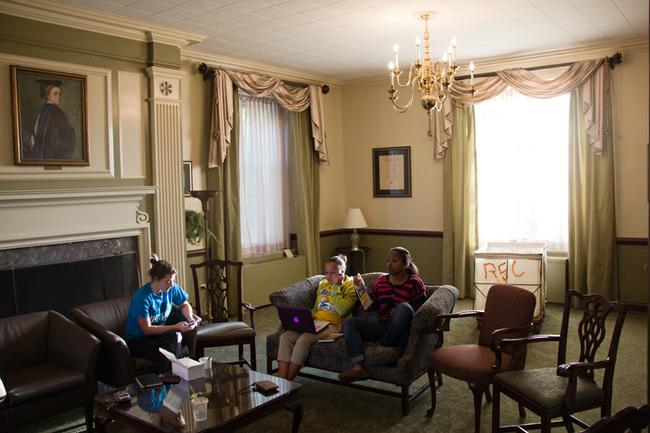MU’s on-campus housing is taking the next step toward having all of the residence halls house students in a coed fashion. As of the fall 2012 semester, Johnston Hall will part with its all-female status and become a coed residential building.
Since its opening in 1947, Johnston has always accommodated a single-gender population of students, as did most of the buildings at MU for decades. Last fall, residence halls Lathrop and Wolpers dropped their single-gender status as well, leaving no male-only residence halls on campus. Now, Jones Hall will be the last female-only building available.
“From what I’ve gathered about coed dorms, there is really very little difference from them and Johnston as far as community standards, respect for personal space and privacy, and cleanliness are concerned,” Johnston resident Emily Pfitzinger said.
Johnston will close in December 2012 for renovations to the building. Tigers Diggs will be renovated during summer 2012 to create more spaces while Mark Twain Hall will remain empty during the 2012-2013 academic year to continue construction on the residence hall rooms, community spaces and Mark Twain Market dining hall.
“So we will move some of those programs over to Jones Hall, the particular one that was there (Johnston) was the Women’s Leadership,” Director of Residential Life Frankie Minor said. “What we haven’t decided is post-renovation when it reopens in the fall of 2014 is whether it will go back to being all female or whether it will remain coed.”
The student interest in an all-male residence hall has appeared to fade completely, but some students said an all-women’s hall has irreplaceable benefits.
“Besides a feeling of safety, a super important advantage to living in an all-girls dorm is women empowerment opportunities,” Johnston resident Alex Rather said. “Every year we have female leaders and professors from all different departments come talk to us about what it means to be a woman in today’s society how it pertains to their research or department. We attend certain events as a whole. ”
Certain academic programs are reflecting the campus residence halls’ transition to becoming coed. Previously, a handful of majors have been almost entirely dominated by a single gender such as women in education and men in engineering, but in recent years gender in these fields is becoming more and more even.
“Thankfully, those are beginning to balance out, so as the academic programs become more coeducational, it has increased the need for more of our facilities to become coed,” Minor said. “The gender designations of our buildings have changed over time based on the interest of students.“








